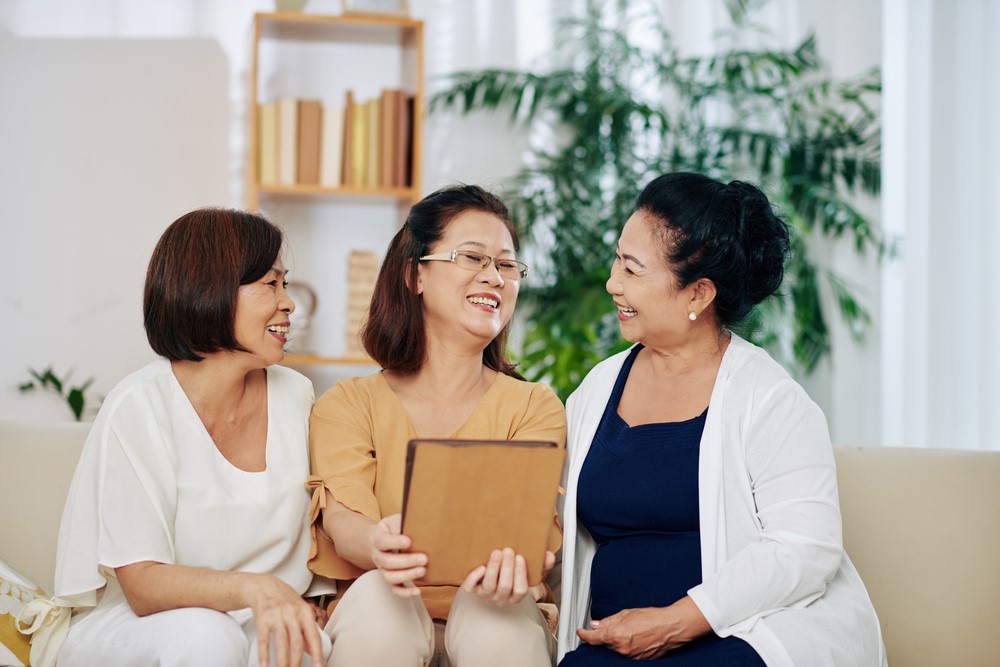
According to the last U.S. Census (2010), 3.8% of the seniors aged 55+ are Asian Americans and Pacific Islander (AAPI) older adults, and Vietnamese seniors made up only 10% of that already small percentage. The AAPI population of seniors grew by a whopping 85% from the previous decade, but Vietnamese are still small in numbers in that category. An estimated 98% of Vietnamese seniors aged 55+ are foreign born.
It means that most healthcare providers have only a minuscule understanding of my family’s healthcare needs and beliefs. As a first-generation Vietnamese-American – even from the inside – I too, didn’t fully understand how these beliefs influenced my worldview around medical treatment until I was in college.
I cared for my grandmother for about five years as she advanced through the stages of dementia, and it taught me a thing or two about how cultural roots and beliefs can strongly influence a senior’s care. With family members from different generations under the same roof, we often saw things from our unique lens. Today, I bring this knowledge and experience to my career, creating content and showing caregivers how to care for seniors from many cultural backgrounds.
To read up on the impact of culture on caring for aging relatives, check out our post on Vietnamese culture and exploring assisted living options.
This article is part of our Caregiver Essays category – featuring experiences, stories, and advice from real caregivers. We welcome submissions from past and present caregivers, along with anyone else who has a story to tell. Check out this page for more details.
Hot and Cold Upbringing
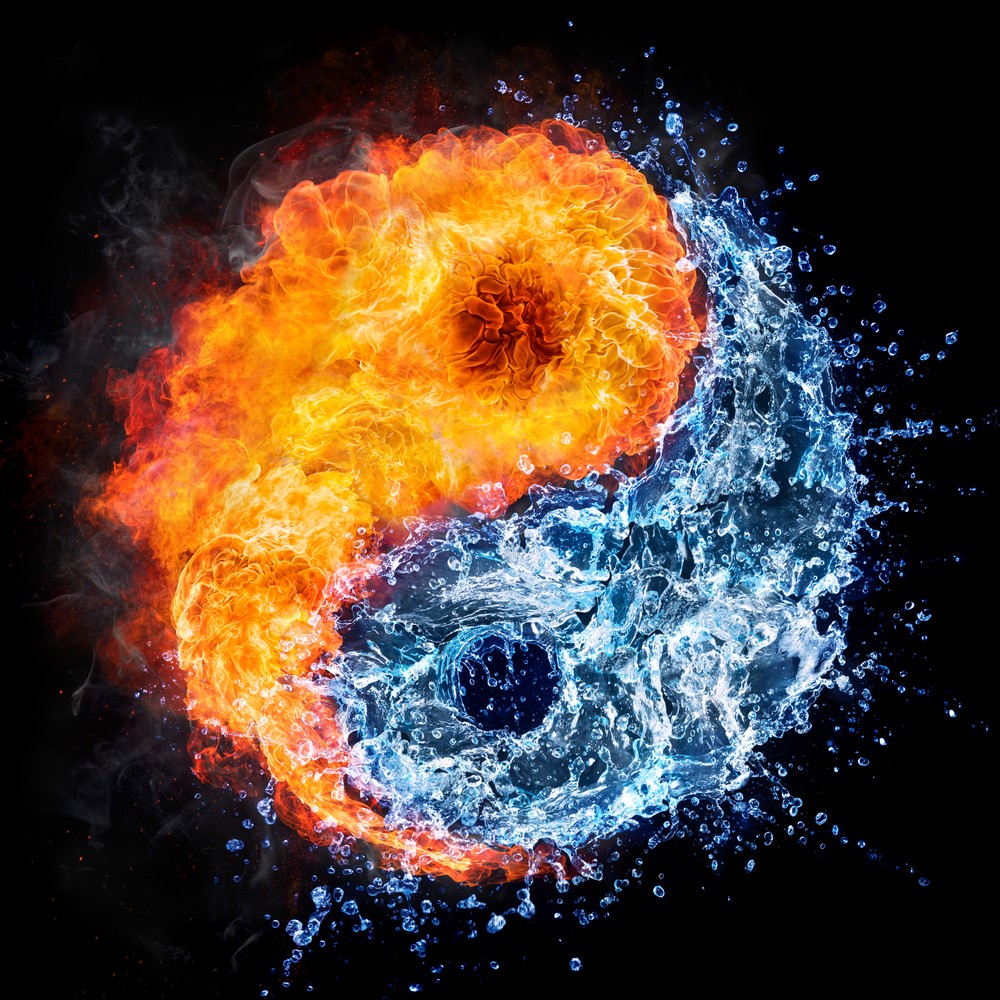
When I was little, I remembered rummaging through the snack cabinets for a bag of chips. My mom exclaimed cái đó là nóng, those are hot in Vietnamese. I was confused as they weren’t heated up nor did they have a red chili icon plastered on the oriented polypropylene.
I had many odd experiences like this growing up, unsure of what they meant. I was fluent in Vietnamese at a young age while going to school to learn English, but this temperature-themed enigma bothered me. I brushed it off, but in the back of my mind, why were non-spicy chips hot?
Having a Chinese-Vietnamese grandmother, she almost made sick days at home enjoyable. It wasn’t just because I watched The Price Is Right and Let’s Make A Deal, but I had an at-home medspa. My grandmother would apply Vaporub to the surface of my back, and use the edge of my uncle’s dog tag to rub along my spinal cord and ribs in a practice called cao gio.
These moments were precious pearls. Intimate flashbacks that you don’t get in movies or eat popcorn to. Although I was Vietnamese and Chinese, I didn’t feel that I always belonged.
When the Roles are Reversed
In time, my grandmother became the one who needed care. After enduring a stroke, cancer, and the beginnings of dementia, she needed an opportunity to rest.
My grandmother wore her rosey scarf. Even though she ambulated with a walker, she would walk to the center of our hallway praying in each of the four cardinal directions. It was a balancing act.
I spent days Googling “forgetfulness,” “forgetting family members,” and “throwing her walker across the room,” and the search results usually generated something along the lines of dementia. My grandmother was in the habit of throwing her walker at my mother. I repeatedly told my mom that Grandma was showing signs of dementia, but she didn’t pay any mind to it.
Her reality needed to be acknowledged. Her husband was still alive in her world, despite passing away before I was born.
Based on my mother’s reactions to my grandmother’s behavior, I could tell that there was a disconnect between us. At the time, I wasn’t sure what it was. In retrospect, I did not really think of ourselves in separate terms, but we are different. I knew what it was, but you can’t treat something if it’s not diagnosed. My attempts at getting her diagnosed seemed to always be in conflict with my mom’s views.
I was born in the United States, but mom was from Vietnam. Through my grandmother’s dementia, I got to see glimpses of her personality seep through her foundering hippocampus. Her life in Vietnam, the part of her life where she was a baker, a mom, an entrepreneur, a philanthropist. A life I never got to see, until she was reliving those moments in time.
Making Sense of A Foreign Language
A particularly challenging aspect of caregiving for my family was in understanding what was going on. No one in my family was a native English speaker, and was being talked to in a language that was second to them. So, I accompanied my grandmother to every medical appointment and interpreted communications between her and her doctors, despite her clear need for a medical interpreter translator to be available.
We need the efforts of interpreters, but Vietnamese translators are in short supply. When organizations do make them available, they miss the distinction in dialect. Most Vietnamese interpreters tended to use the Northern dialect as opposed to my grandmother’s Southern dialect. Grandma was already disadvantaged knowing no words in English. Research shows that Asian Americans are five times as likely to have communication problems and twice as likely to have unmet medical needs as a result.
Tuning To Cultural Influences that Shape Elder Care
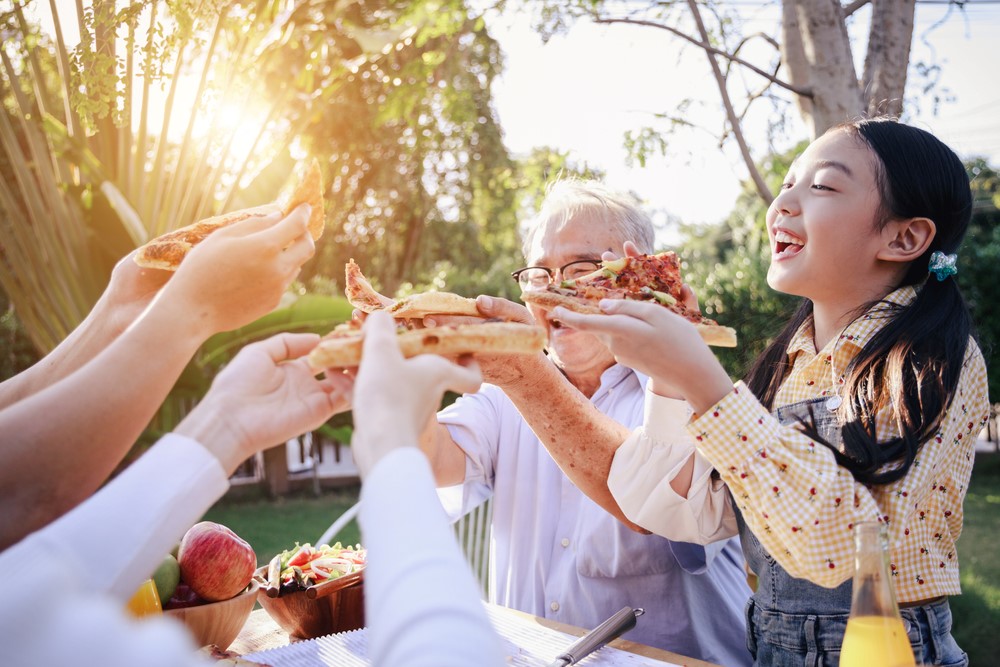
When I was a sophomore in college, I took a class in health communication. One of the chapters talked about cultural philosophies about health. There are so many different ways to talk about health, whether it’s through a biomedical lens, a sociocultural lens, or the biopsychosocial lens.
I read about the way that Russian patients believe that health issues are derived from the weather or social situations. Then I read that Chinese patients use a yin and yang model to explain balance and harmony which translates to health. Beneath that, I saw the use of hot and cold to describe illness and treatments.
After reading that passage, it felt like I had a personal awakening. It all made sense. I remember one time I had a bad stomachache, and my mom said “your belly is cold, drink something hot.” It was to balance out the imbalance: illness. I was spoiled with these cultural glimpses.
A Caregiver’s Battle with Guilt
As a caregiver, I wanted to be the best that I could be. I wanted to have the best redirects in my arsenal, and premeditatively have the right things to say. I felt guilty. There were times that I felt I could’ve done better.
In the beginning, I was more of a companion to my grandmother. Eventually, I was expected to be home as soon as school was over, and make sure dinner was ready.
I resented my responsibilities as a younger caregiver. I was twelve when my grandmother first needed assistance and our options were limited. During the summers, I relished my sleep since I didn’t have school, but my grandma needed her Meals On Wheels to be picked up [by a person] at 8 am on the nose. I dreaded getting up early.
The nurse searched the fridge for lunch and didn’t see anything prepared. I put together some rice and chicken and gave the bowl to her so that she could help my grandmother eat.
A small part of me died that day. My cheeks were crimson. I felt ashamed. I was so adamant about having a summer to myself, that I couldn’t even make sure that my grandmother had lunch.
Looking back, I didn’t really manage my stress well or have people to talk to about our situation.
Vietnamese philosophies of health don’t acknowledge mental health or the need for mental healthcare.
Dealing with Loss and Grief
When my grandmother died, I was beside myself. I had seen her around midnight when I came downstairs to get a glass of water. My husband came home the next morning after a night shift at the hospital and said that he had something to tell me but wanted me to go back to sleep first.
I was already up and needed some solace before returning to my slumber. He sat down on the bed and told me that my grandmother had passed away. I melted into his lap. I attempted to gather myself and went downstairs to find my whole family in the living room, even my uncle who lived an hour away.
Cultural beliefs about death and dying also came to the fore. Even the way my mom and I grieved the loss of our beloved matriarch was distinct. I was a sobbing mess; it looked like my shirt had been sprayed with a garden hose.
My mom, on the other hand, grieved in her typical stoic nature. My mom said that crying would tie my grandmother down to Earth and that she needed to be let go. The belief comes from associating crying with suffering. It is thought to hold the person back from their next life instead of letting them go. My way of letting go was by letting my tears go with her.
My Transition into A Career Caring for Seniors
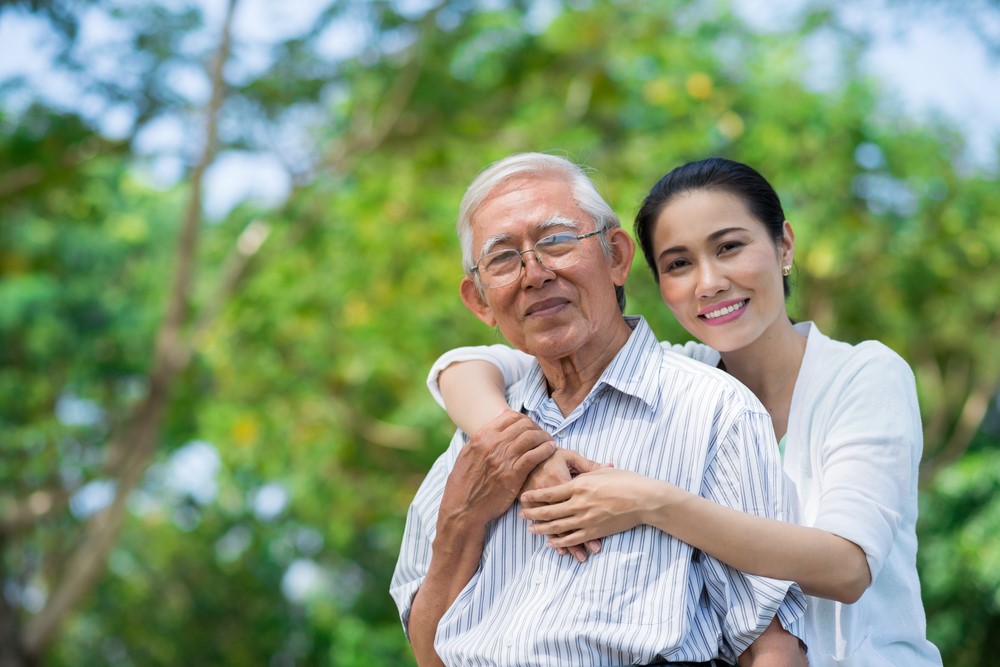
That guilt has lingered with me well beyond her passing. I have cared for dozens of older adults since and thought it would be an easy transition going from caring for my family to caring for non-family members.
I was mistaken. Many of the people I cared for reminded me of my grandmother in various ways. Some played the piano as she did. Some had a fluffy cloud of cottony hair as she did. Others had low turgor levels in their skin, making their fingers fluffy and pillowy to the touch [note: this indicates dehydration, it is not desirable].
I don’t believe that a lot of young adults and children are ever prepared for the responsibilities of caregiving. Many adults struggle with those same responsibilities and have a hard time coping. I didn’t know any other kid caregivers at the time; it wasn’t something that anyone just talked about casually. I wish I knew other kids in a similar situation. They do exist.
Whatever your situation, find your champions and support team that you can lean on.
At age 19, when I saw a packet on hospice, it caught me off guard. I didn’t know anyone who was dying. I’m not sure if it was ignorance or denial, but I didn’t want to think about the people I loved needing hospice. Some of the subjects and decisions that a caregiver will encounter, such as decisions around the end of life, will take a toll on your emotional health.
My family wanted to keep my grandma at home and I’m glad that we were able to. Just know, it’s not an either-or situation, where you have to choose between putting an elder in an institution to get the care they need or struggling through the process all on your own at home.
My experience taught me about the many resources out there to help seniors with a host of medical and financial needs right at home. You’ll find nutritional support, rides to the doctor, services that install a grab bar in the bathroom to prevent a fall, respite care to give a weary family caregiver a break, and more.
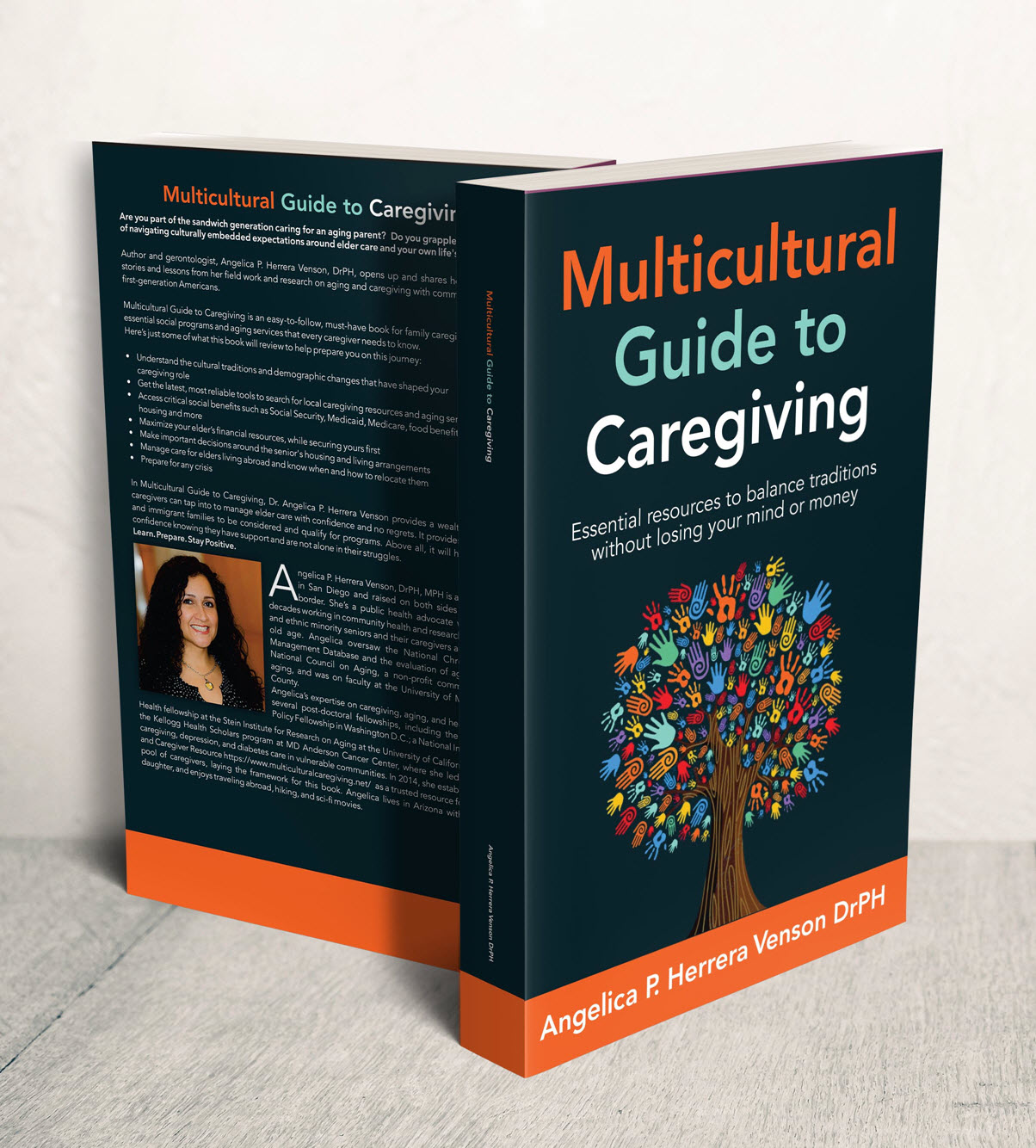
The Multicultural Guide to Caregiving
Multicultural Guide to Caregiving is an essential resource for balancing cultural expectations around elder care, without losing your mind or money in the process.
Feeling Overwhelmed?
Check out our Caregiving Consulting service for personalized support and guidance.

Leave a Reply